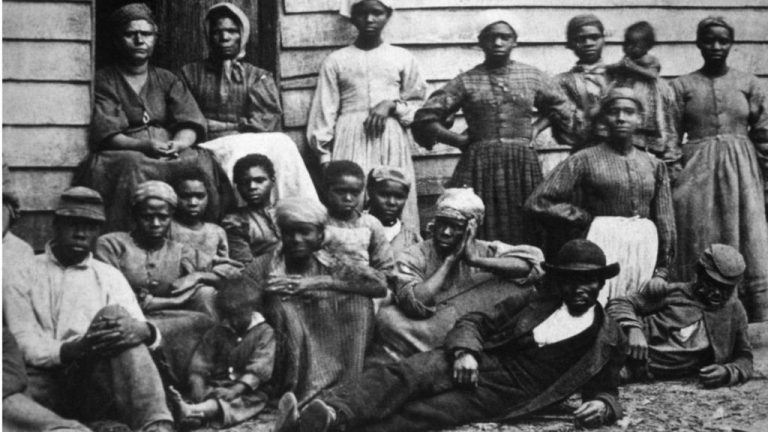 The big issue of reparations, accounting for past atrocities and possibly giving out money to black Americans who have a lineage to slavery is a topic that has gained recent attention. It’s a part of the Black Lives Matter Movement and perhaps this would be a good solution if it could actually help matters. But would it? Let’s examine it.
The big issue of reparations, accounting for past atrocities and possibly giving out money to black Americans who have a lineage to slavery is a topic that has gained recent attention. It’s a part of the Black Lives Matter Movement and perhaps this would be a good solution if it could actually help matters. But would it? Let’s examine it.
A few weeks back I lost my car key in Fairmont Park. Nobody paid much attention while I searched for about an hour except one recent immigrant: Ali Burns, who recruited a group of his friends who all helped me find my lost key. The 15 young men took about ten minutes out of the soccer game and found my key! It would normally seem incidental but these good Samaritans were all African-Americans and recent immigrants.
What I could discern from the behavior of all of these men was that they felt fortunate to be living in a country without oppression and violence. I know that the many Somalians we have invited to relocate to Utah were previously living under totalitarian regimes or places where warlords had taken control and brutally murdered anybody who attempted to speak out against or oppose them. The Somalians, especially in Utah, who have been invited to relocate here have proven to be hard-working outstanding citizens.
They have that common pluck found in so many immigrants. A sense of humility and gratitude to be somewhere where they can get ahead with their hard work and education. They feel fortunate to live in a country where a true meritocracy exists.
It’s sad that so many of the third and fourth-generation white and black Americans don’t see America in this way. Instead, they are being indoctrinated by the idea that America is a racist country, that America practices “systemic racism” against our African-Ameri population. Further, they espouse that American cops want to kill black people.
All of these narratives lack supporting factual data. Columbia University Professory John McWhorter points out that he supported the “anti-racist” ideas, up until he learned that there was plenty of data on shootings of people of all races and ethnicities in the United States. He further learned that there is nothing supporting the claim that more blacks are shot by police (by a percentage of their population) than whites. McWhorter believes that the anti-racist movement is counter productive. It really boils down to what big-overarching narrative would you like to run as the background music for your life?
Choosing to be a victim seems to be a dead end. I’ve seen recent YouTube videos where people are pulled over by the police and are immediately crying racism and unjust brutality. These people have chosen to believe that all police are racists. This is causing police to retire in droves, which is causing many cities to become unsafe.
A much better story and narrative is that America is a country of immigrants. We are all immigrants: either third, fourth, fifth, and sixth generation. Even Native Americans came here from somewhere else. Not everyone is happy about this fact and not everyone came upon their own accord.
Certainly, there are black people who have heritage and are descendants from slaves, who have ancestors who suffered the atrocities that went along with slavery. It’s worthwhile to learn the history of slavery and the terrible institution that existed. But it should be seen in the context of human progress that has been made since that time.
The Logic of Slavery Reparations
So why not pay out money to people who are the descendants of former slaves? Certainly, there were whites who benefited from their labor. Shouldn’t they be paid?
First of all, racial killings have been occurring for thousands of years. During slavery lynchings were common. Slavery might have ended after the 13th Amendment was passed but ongoing racism wasn’t properly addressed until the Civil Rights Movement of the 1960s.
Prior to the Civil War, thousands of blacks died on slave ships due to diseases and malnourishment. More died afterward from lynchings. How should we come to terms with these atrocities?
The broad question is: should money be paid out to the descendants of a group of people who suffered — especially those who can prove they have a direct lineage to slaves? Since slavery hasn’t existed in the U.S. in over a century and a half, we are talking about descendants who are now three to four generations removed from a deceased slave. But the broader question is: who should pay? Should the government or some non-profit also be looking for the descendants of slave owners who are three or four generations removed and require them to pay? This wouldn’t be legal due to an obvious statute of limitations.
Usually, this is where the argument breaks down and the group of reparation proponents says that “the government” should pay. The vast majority of white Americans are not descended from slave owners. So can it make sense that everyone should pay? Even those who had no association with slavery? Should those who are descendants of Union soldiers who fought in the Civil War get a pass? After all, if it weren’t for those mostly white men who fought and died, slavery might have never ended.
We can see by taking this argument to its logical conclusion of finding fairness that the entire idea begins to break down. But it’s better to examine it in an even broader context.
How do we come to terms with any atrocities that our ancestors suffered and the ancestors of others perpetrated?
How about remembering that the world was a much more cruel place than it is today? Shouldn’t we feel thankful we live now and not when terrible things were happening to people who were associated with a particular religion or who had a particular skin color? Shouldn’t we feel grateful that humanity has progressed to offer us all much better lives, with the freedom to do as we wish?
Determining the story that motivates your life
If a person chooses to live their life based on how terrible their ancestors had it rather than look at the opportunity that exists here, they are building a massive barrier based on their own pre-fabricated limitations of their perceptions.
Choosing to live by a story of victimhood is a second form of slavery. We can allow our stories to empower us, or we can allow our stories to hold us bondage into an idea that is simply untrue.
This goes for both whites or blacks. Making yourself a slave to the past, or a victim of the past monstrosities your family members or ancestors suffered limits human potential.
Researching slave reparations and BLM, I found two Ivy League professors who recently discussed this very topic. One is an economics professor at Brown University named Glen Loury. The other is a linguist and philosophy professor at Columbia University, John McWhorter (mentioned earlier).
“Not every story is a story of domination and oppression. Our story is an American story. Emancipation is part of the story. It’s the culmination of a world-historic event,” says Loury. I highly encourage readers to listen to this entire conversation.
I can see that in Utah there are hundreds of supporters and activists who want to stand up for the empowerment of people of color. Support for causes like BLM should be about the true empowerment of people of color not support for a victim mindset.
Who wants to be a pawn for this unhappy, illogical, irrational story– that all blacks are somehow owed something because their ancestors suffered? The American story is that we have led the world in terms of human progress.
When we remove the doctrines of intersectionality: race-baiting; critical race theory and reparations — we can see that America is full of opportunity for everyone of every race.
If America were such a terrible place then why do so many immigrants choose to come here to America?
I’ve asked that question of nearly every immigrant I’ve met. I tend to hang out a lot with immigrants. My wife is an immigrant. One of my best friends is an immigrant from Russia. Most immigrants I know say they came to America because it’s “the land of opportunity.” It’s the least likely place where an oppressive government will keep individuals down because of ethnicity, religion, or skin color.
Are the organizers and protests of Black Lives Matter aware of this sentiment? Have they spoken to recent immigrants from places like Somalia? Those men helped me in the park because they didn’t feel that the narrative of their life should be tied to the color of their skin, or past atrocities that they and their families likely suffered just a few years ago (not 150 years ago). Those men in the park were making the most out of their situation. They should be a model for all of the victims, whining Americans who want to blame their inability to work hard and go out and make it due to bad things that once happened is simply not useful or effective.
Are we completely free of racism? No, we still have problems with racism. We still have problems with bigotry, with religious intolerance. But I strongly believe most whites are not racist especially in Utah.





